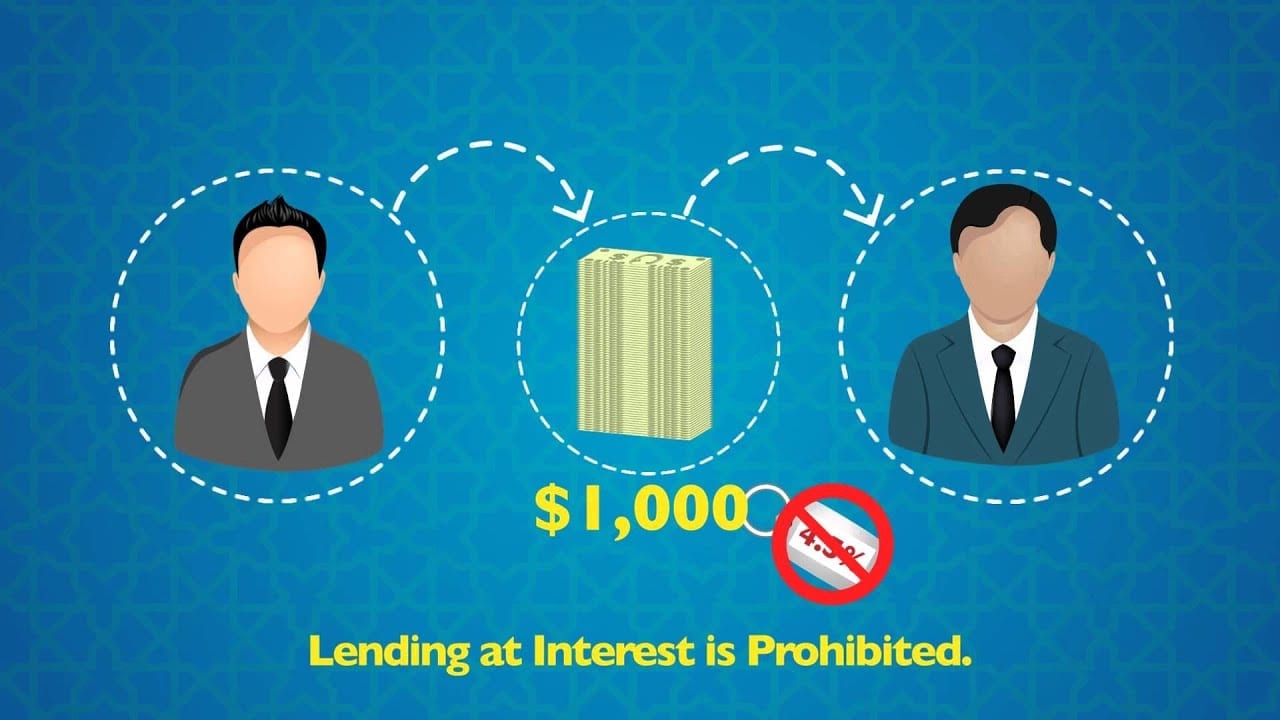Islamic Mortgages for First Time Home Buyers, Part 1: Costs

If you are a first time homebuyer and want to purchase your new home in a halal way, you will want to learn all you can about the process. You may have already made a few key decisions: where you want to buy your home or what type of home you are looking for. What you may need is more guidance on how to apply for financing.
Throughout this series, we will discuss what to expect, including qualifications, process, and the authenticity of the Islamic finance model itself. This article will help you understand the costs associated with Islamic mortgages.
The Cost of Islamic Home Financing
The first thing you need to know is that an “Islamic loan” isn’t truly a mortgage loan at all. It is a completely different model of financing based on the concepts of partnership and co-ownership in Islamic law. While the structure is completely different from a traditional mortgage, however, the costs are comparable.
Down Payment
The down payment is typically the biggest expense on a buyer’s mind. The cost of a down payment will vary depending on a variety of factors, the most important ones being the price of the home and the amount you can spend.
If you can afford a down payment of at least 20% of the purchase price of your home, you will be able to get a better rate on your monthly payments. But Guidance Residential has programs in place to provide halal Islamic home financing with as little as 3% down. Keep in mind that if you put less than 20% down, you will have to buy Private Mortgage Insurance (PMI), which will be an added expense.
An industry term to know here is the Finance to Value (FTV) ratio: That is the amount you need to finance compared to the value of the home. If your FTV is 90%, you’ll pay 10% of the price of the home as the down payment. If your FTV is lower–say 70%–you’ll need 30% of the purchase price of the home for the down payment. In general, the lower the FTV, the cheaper your rate for monthly payments, as it is less risky for the financier.
Closing Costs
The down payment is not the only up-front cost, however. Closing costs must also be considered.
Closing costs are additional fees such as the lawyer’s fees, escrow charges, appraisal fees, financing fees and utility adjustments.
A good rule of thumb is 2% of the purchase price will cover the closing costs. So for a $200,000 home with a 5% down payment, you would require $14,000 to cover both the down payment and closing costs.
Monthly Payments
After those initial down payment and closing costs are completed, what remains the monthly payments the customer pays. While the payments have been structured to resemble mortgage payments, the foundation is completely different.
When you finance a home through Guidance Residential, you are not a borrower but rather co-owner of the property with Guidance. This means that you will not be repaying a loan at interest; you are buying a larger stake in a co-owned property. In other words, your monthly payments are your means of gradually buying Guidance’s share of the property.
For example, let’s say you choose a home that is priced to sell at $100,000 and you pay 5% (or $5,000), while Guidance provides the remaining 95% (or $95,000). You are 5% owner, and Guidance is 95% owner.
You will then gradually buy that 95% from Guidance through monthly payments that are competitive in cost with a traditional mortgage. By the end of the contract, you will have full ownership.
Riba-Free Financing
Scholars of Islamic finance agree that Islamic law does not allow Muslims either to charge interest or to pay interest, known as riba. Guidance Residential’s sharia compliant financing is certified to be 100% free of riba.
The customer makes monthly payments that consists of two elements combined into one. Those two parts are a profit payment and an acquisition payment.
As co-owners, both the home buyer and Guidance would have the right to occupy the property, but Guidance gives the customer the exclusive enjoyment and use of the whole property. In exchange for this exclusive right, Guidance charges the customer a profit payment. This profit payment is based on a competitive rate of return that is charged on Guidance’s ownership share. This charge is included in the regular monthly payment the customer will be responsible to pay.
The remaining portion of the monthly payment allows the customer to acquire an increasing share of ownership in the home; this is called the acquisition payment.
Together, these two amounts make up a predictable monthly amount that is competitive with the monthly payments offered in a conventional mortgage. As the customer makes acquisition payments to acquire a further share in the property, Guidance’s ownership share decreases until the buyer is the sole owner of the home. This creates the declining balance nature of the program.
How Monthly Payments are Calculated
Home buyers in the U.S. naturally expect that their monthly payments will be competitive with what they would pay for a conventional loan. For this reason, Guidance Residential aligns its rates with prevailing interest rates. This makes the numbers look more familiar and makes it easier for a customer to compare their options. But this outward similarity does not turn the monthly payments into a repayment of a loan with interest.
As an analogy, consider the following simple example: Halal potato chips may be offered at the same price as a famous brand of potato chips that contain lard. The pricing of the potato chips, though the same, does not alter the nature of the product.
Is it true that Islamic financing costs more than a conventional home loan?
No, this is false. It was once true that Islamic financing was more expensive than a traditional mortgage, but this is no longer the case. As Islamic home financing has become more widespread, this enabled costs to be reduced. The costs are now competitive with a conventional mortgage, while the risks to the buyer are lower with Islamic home financing.
How much can I can afford?
To figure out the maximum amount you can finance, financiers look at the following:
- Credit history
- Available cash
- Income
- Debts and financial obligations
How important is my credit?
Credit score is a key factor in determining the home financing you may qualify for. That’s because it’s a snapshot of your track record for handling financial obligations.
If you have a history of making monthly payments on time, that indicates that you’re more likely to make house payments on time. And if you stay well below your credit limits, it shows that you are good at managing the credit that is extended to you.
Financiers are also looking to see that your history is free of “derogatory” events like bankruptcy and collections.
So your credit can affect the amount required for a down payment, the amount of financing that will be offered, and the profit rate you will be offered as well.
How much will my Islamic mortgage cost?
How much you will pay for your home financing depends on the price of the home you decide to buy, how much of that price you need Guidance to buy for you. The other major factor is the rate you are able to get, which–as mentioned above–is competitive with prevailing market rates at any given time, while also being impacted by your credit score.
So the question comes back to how much home you can afford. When buyers visit a home financing provider, the conversation typically starts with two key questions:
1. “How are you going to pay for this?”
2. “What else do you have to pay for each month?”
The information buyers provide to answer these questions helps determine their income and debt ratios. These ratios are important because they shed light on the buyers’ overall qualifications rather than solely their cash in hand.
With the information you provide, the financing provider will calculate two ratios:
1. Front-end ratio—housing expenses (including taxes and homeowner’s insurance) over income. If a buyer has a gross income of $5,000 per month and housing expenses of $1,300, their front-end ratio is: $1,300 / $5,000, or 26 percent.
2. Back-end ratio—this incorporates additional debt. If that same buyer has a car payment and student debt of an additional $400 per month, that would make their back-end ratio $1,700 / $5,000, or 34 percent.
Using this information, your Account Executive can help you figure out how much financing you can qualify for and the rate you can get.
You can find a quick estimate yourself online using Guidance Residential’s calculators, but your Account Executive would be happy to delve deeper and answer your questions.
If your ratios aren’t in line with the financer’s guidelines, it can take time to make appropriate adjustments. This is why it’s a good idea to get Pre-Qualified as early in the process as possible.
How can I come up with these funds?
These expenses can look daunting, so here are some money-saving tips to help:
- Track your expenses for a month and look for places to trim
- Set savings goals or, better yet, “pay yourself first” — put the savings aside first after receiving each paycheck
- Plan ahead to avoid last-minute expenses like lunches out
- If you’re fortunate enough to have someone willing to help with a gift of cash, ask your Account Executive first about the documentation you’ll need with it
How can I improve my credit rating?
Here are tips to improve your credit rating:
- Use credit to buy low-priced items
- Make a few prompt minimum payments
- Pay bills on time
- Use less than 50% of your available credit in each account
- Don’t rush to close unused accounts
- Be patient — some credit blemishes can only be improved with time
At what point should I apply for financing?
It’s a good idea to get Pre-Approved for financing when you’re seriously considering buying a home but before you begin looking at houses. Knowing what you qualify for will help you narrow down your search to homes within your price range, and it shows both real estate agents and sellers that you are serious and able to secure the financing you’ll need if you like the home.
You can get a rough estimate of the financing you may be able to receive by getting Pre-Qualified, but full Pre-Approval gives you the best odds for having a home offer accepted — an advantage you will want if you come across your dream home. Then you will be well on your way to unlocking the door to your future.
Ready to begin? Your Guidance Residential Account Executive is here to help with any questions. Looking to refinance or purchase? Have a friend or family member who is looking for a home? Call 1.866.Guidance, or start an application today!
Originally posted on April 2016, updated on October 3, 2023.




